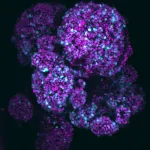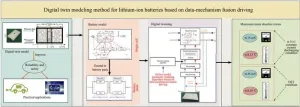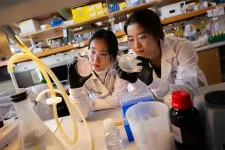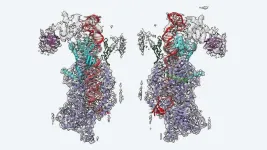(Press-News.org) La Jolla, Calif. (December 2, 2024) — A new study from scientists at the University of California San Diego introduces a powerful new approach to understanding the operation of crisis pregnancy centers, non-profit organizations dedicated to an anti-abortion agenda. The study published in JAMA Internal Medicine provides the first account of the practices of crisis pregnancy centers (CPC) operating in the United States.
"While our study shows crisis pregnancy centers provide valuable community services, like parenting classes, there is a clear need for consumer safety measures to prevent the promotion and use of their questionable medical services," said John W. Ayers, Ph.D., who is deputy director of informatics at the UC San Diego Altman Clinical and Translational Research Institute, in addition to scientist at UC San Diego’s Qualcomm Institute, co-creator of ChoiceWatch.org and study coauthor.
ChoiceWatch.org: A New Window into Crisis Pregnancy Center Operations
The study utilized ChoiceWatch.org, an innovative analysis engine that archived and analyzed more than 470,000 webpages from 1,825 crisis pregnancy center websites between September 2023 and March 2024.
"Crisis pregnancy centers have largely avoided scrutiny," said Karan Desai, a medical student at University of Michigan Ann Arbor Medical School, co-creator of ChoiceWatch, and the study’s first author. "For example, there are no databases of CPCs or reporting of CPC practices collected by government health agencies.”
“By maintaining this public database, we're creating transparency around CPC practices and providing evidence that can inform both healthcare providers and policymakers," noted Mark Dredze, Ph.D., the John C Malone Professor of Computer Science at Johns Hopkins University, study co-author and co-creator of ChoiceWatch.org. "This transparency is essential for ensuring public health.”
To demonstrate how these data can be used, the research team selected a subset of 1,825 CPC websites archived between September 2, 2023, and March 14, 2024, and used the content of these pages to describe where they operate and what services they advertised.
Crisis Pregnancy Centers: A National Presence
The research revealed a nationwide network of crisis pregnancy centers, with Texas leading with 143 locations, followed by California (126) and Florida (98). When adjusted for population, Montana and Wyoming showed the highest concentration, with 7.45 and 6.48 crisis pregnancy centers per 100,000 women of reproductive age, respectively. Utah, Hawaii and Washington D.C., had the lowest concentrations.
"While some might assume crisis pregnancy centers operate primarily in states with restrictive abortion policies, our data shows they maintain a strong presence across all 50 states," said Hollie Keene, a student research fellow at the Qualcomm Institute at UC San Diego and study coauthor, noting that progressive states have similar numbers of crisis pregnancy centers as states that heavily restrict abortion.
The team found that 90% of crisis pregnancy center websites advertised social services, including adoption (83%), parenting (62%), post-abortion social support (39%) and men’s social support (14%).
The team also found that 91% of CPCs advertised medical services, including pregnancy tests (85%), ultrasounds (77%), STI testing (54%) and abortion education (52%). Most concerning, 30% of CPC websites promoted "abortion pill reversal," with some centers directly targeting women who might regret starting a medication abortion.
"CPCs are offering an unproven and potentially dangerous intervention in the form of abortion pill reversal treatments," added Davey Smith, M.D., professor at the UC San Diego School of Medicine, director of the Altman Clinical and Translational Research Institute at UC San Diego and study co-author. "This treatment lacks FDA approval, but, more worryingly, could increase the risk of serious complications like sepsis, especially in cases where it interferes with the completion of a medication abortion."
A Call for Crisis Pregnancy Center Regulation
In discussing their findings, the authors suggest the need for greater scrutiny of crisis pregnancy centers to inform regulation that ensures their services conform with medical best practices.
"Healthcare providers should proactively address misinformation about abortion pill reversal during medication abortion counseling," said Smith. "Patients should understand that 'reversal' treatments are neither proven nor recommended, and, if complications or concerns arise, they should return to their healthcare team, not a crisis pregnancy center."
"Even benign services, such as STI testing, should be provided within a healthcare ecosystem that prioritizes safety and meets regulatory approvals," said Desai. "It is unclear if trained professionals are providing these medical services, if the diagnostics or treatments meet acceptable standards, or what safety protocols are in place."
ChoiceWatch.org will continue to archive and analyze crisis pregnancy center websites, allowing researchers and policymakers to track crisis pregnancy centers over time, monitor how policies impact crisis pregnancy center practices, evaluate compliance with regulations and identify emerging trends in CPC marketing strategies.
###
END
A team of astronomers has found that Venus has never been habitable, despite decades of speculation that our closest planetary neighbour was once much more like Earth than it is today.
The researchers, from the University of Cambridge, studied the chemical composition of the Venusian atmosphere and inferred that its interior is too dry today for there ever to have been enough water for oceans to exist at its surface. Instead, the planet has likely been a scorching, inhospitable world for its entire history.
The results, reported in the journal Nature Astronomy, have implications for understanding Earth’s uniqueness, and for the search for life on planets outside ...
The deep neural network models that power today’s most demanding machine-learning applications have grown so large and complex that they are pushing the limits of traditional electronic computing hardware.
Photonic hardware, which can perform machine-learning computations with light, offers a faster and more energy-efficient alternative. However, there are some types of neural network computations that a photonic device can’t perform, requiring the use of off-chip electronics or other techniques that hamper speed and efficiency.
Building on a decade of research, scientists from ...
Researchers from the Organoid group (previously Clevers group) at the Hubrecht Institute have developed a new organoid that mimics the human fetal pancreas, offering a clearer view of its early development. The researchers were able to recreate a complete structure that includes the three key cell types in the pancreas, which previous organoids couldn’t fully mimic. Notably, the team identified a new stem cell that develops into the three cell types. These findings, published in Cell ...
Researchers at EPFL and Lausanne University Hospital (CHUV), led by professors Grégoire Courtine and Jocelyne Bloch, have achieved a major milestone in the treatment of spinal cord injuries (SCI). By applying deep brain stimulation (DBS) to an unexpected region in the brain—the lateral hypothalamus (LH)—the team has improved the recovery of lower limb movements in two individuals with partial SCI, greatly improving their autonomy and well-being.
Wolfgang Jäger, a 54-year-old from Kappel, Austria, has been in a wheelchair ...
Source: Beijing Institute of Technology Press
Lithium-ion batteries are celebrated for their high specific energy, long service life, and low self-discharge rates. However, ensuring their reliability and safety under various operating conditions is critical for their continued success in industrial applications. Digital twin technology, which creates a virtual replica of a physical entity, offers a promising solution by enabling real-time monitoring and optimization of battery performance. This technology facilitates interactive feedback, data fusion, and iterative ...
Analyzing capacity degradation characteristics and accurately predicting the knee point of capacity are crucial for the safety management of lithium-ion batteries (LIBs). A recent breakthrough study presented by researchers from Shandong University introduces a knee point prediction method based on neural network. This advanced method can help us clarify the degradation mechanism and predict the knee point.
The study focuses on battery life, which is the result of multiple coupling aging mechanisms affected by multiple factors. It is significantly necessary to clarify the mechanism for the capacity degradation at each stage and possess the ability to detect the knee point. It can not only ...
A cancer therapy that prompts the body’s immune defenses against viruses and bacteria to attack tumors can make patients more vulnerable to heart attack and stroke. A possible explanation for this side effect is that the treatment interferes with immune regulation in the heart’s largest blood vessels, a new study suggests.
Led by researchers at NYU Langone Health and its Perlmutter Cancer Center, the new work focused on a potent class of cancer-fighting drugs called immune checkpoint inhibitors. These medications ...
Researchers at University of California San Diego School of Medicine have demonstrated that large language models (LLMs), such as GPT-4, could help automate functional genomics research, which seeks to determine what genes do and how they interact. The most frequently-used approach in functional genomics, called gene set enrichment, aims to determine the function of experimentally-identified gene sets by comparing them to existing genomics databases. However, more interesting and novel biology is often beyond the scope of established databases. Using artificial intelligence (AI) to analyze gene ...
COLUMBUS, Ohio – Alcohol’s ability to increase people’s pain threshold is one reason that drinking also leads to more aggressive behavior, a new study suggests.
Researchers found that the less pain that study participants felt after drinking an alcoholic beverage, the more pain they were willing to inflict on someone else.
“We’ve all heard the idiom ‘I feel your pain,’” said study co-author Brad Bushman, professor of communication at The Ohio State University.
“But if intoxicated people can’t feel their own pain, they might be less likely to feel ...
It’s a big year for microRNAs. The 2024 Nobel Prize in Physiology or Medicine went to Victor Ambros and Gary Ruvkun, who discovered the first microRNA in 1993. Today, we know that humans make more than 1,000 different microRNAS. These molecules are critical for building and maintaining healthy bodies, so it’s crucial that they’re made the right way. Errors in microRNA manufacture can put us at risk for developmental disorders, cancer, or neurodegenerative disease.
To learn how cells accurately generate a mind-boggling array of microRNAs, Cold Spring Harbor Laboratory (CSHL) Professor and HHMI Investigator Leemor ...





